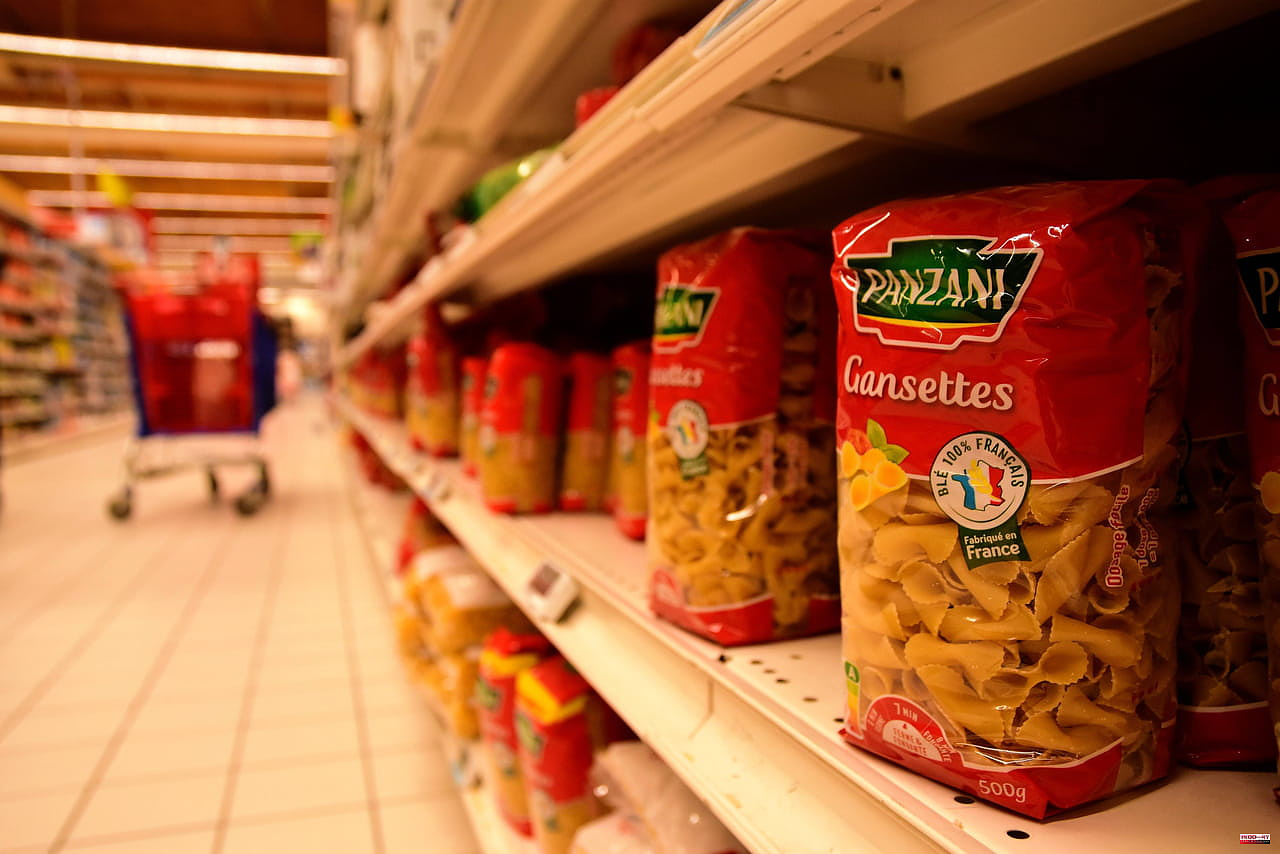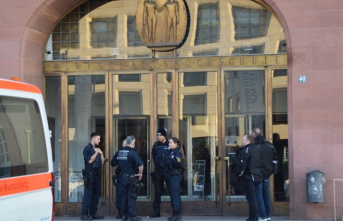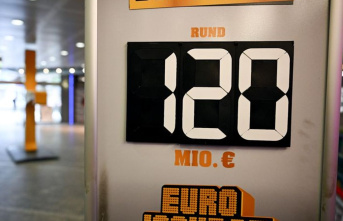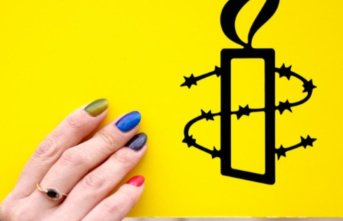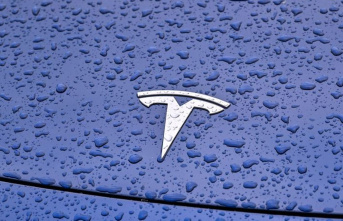FOOD CHECK. The food voucher system, still unclear, is expected this summer. It should target certain households and help them with their food shopping. Here are all the leads and the first info.
[Updated May 17, 2022 at 9:16 a.m.] Will the appointment of Elisabeth Borne as Prime Minister and the imminent composition of a new government make it possible to speed up the food check file? Sea serpent of Emmanuel Macron's first five-year term, the device of a food check intended to help households reappeared during the presidential campaign, becoming a promise of the re-elected outgoing presidential candidate.
It was confirmed by the spokesperson for the last government Gabriel Attal shortly after the re-election of Emmanuel Macron, in the wake of statements by the Minister of Agriculture Julien Denormandie in April, in the middle of the campaign between two rounds. "The idea is to say that today you have nearly eight million of our fellow citizens who have difficulty in having access to local productions, to quality productions, to our French productions in reality and therefore they need give a helping hand to help them acquire this," he said at the time.
What could this food check look like? How will it be distributed or paid out? Who will be entitled to it? There are still many gray areas, but the system is expected by the summer, as a rapid response to the context of runaway inflation which is worrying many households. The implementation of the food check could however be very complicated. From the method of payment to the profile of the beneficiaries, the equation is complex in a context of galloping inflation which is undermining the budget of the French. The scheme should primarily benefit young people aged 18 to 25 whose incomes remain relatively low. Families with children and with modest incomes are also at the heart of the reflection.
If Emmanuel Macron is re-elected and implements this new aid, the food voucher should be a device aimed at the most deprived people. Emmanuel Macron spoke of "lower classes" and "middle classes" at France Bleu on March 22, 2022. What will be the criteria? Will there be a benchmark tax income threshold not to be exceeded? For the moment, these questions have not yet been arbitrated. At this stage, several leads are on the table. In 2021, the Ministry of the Economy defended the idea that the system be entrusted to the municipal centers for social action (CCAS), thus targeting 5 million beneficiaries, a track also presented by the citizens of the Citizens' Convention in their report.
The Minister of Agriculture leaned more towards aid for "young people or families with children on low incomes", in the form of a check or card. The idea is also supported by the deputy of Paris, Mounir Mahjoubi, who defends a project similar to that of Julien Denormandie.
Charities, on the other hand, estimate that the number of potential beneficiaries is much higher, at 8 million. According to a survey by the CSA institute, more than a million French people have used food banks since the start of the health crisis last March. "Having less than a million beneficiaries would not be useful; the real target would be between six and eight million", estimated MP Mounir Mahjoubi in an interview with Ouest-France in the spring of 2021.
Will young people be the first beneficiaries of Emmanuel Macron's food voucher? Invited by Jean-Jacques Bourdin on April 21, 2022, the Minister of Agriculture, Julien Denormandie, said he was in favor of it, while indicating that the arbitrations had not yet been made. "Today, we have not finished the job," he admitted, while the decisions were to be made at the end of March. "Today, the number of people affected by this nutritional inequality is 8 million people. My priority, among them, are young people, 18-25 years old". He also slipped that the amount of 50 euros was on the table.
The Family Allowance Fund does not currently allocate food vouchers at the national level but could be the body responsible for this system, linked to the social aid it already pays. At the local level, certain food aid schemes can already be put in place. It is advisable to contact the social action department of your fund. On its dedicated site, the Caf de Saône-et-Loire notably highlighted the implementation of one-off aid in April 2020, in order to help the poorest to buy basic food products. The device was then aimed at recipients of family benefits, APL, RSA and the activity bonus.
The amount of the food check is not yet known. For the time being, only the deputy for Paris, Mounir Mahjoubi, has presented a quantified proposal, with a check whose price would be between 30 and 60 euros per month per family. “The total budget could then amount to a few hundred million to two billion euros,” the deputy had indicated in February 2021 to Ouest-France. “Afterwards, this will come into confrontation with other proposals, such as specific allocations for the Covid period. This is the whole subject of the discussions which are taking place at governmental level”, he added then. The powerful agricultural union FNSEA offers a device that would allow you to spend 5 euros a day. Guest of Jean-Jacques Bourdin on April 21, 2021, Julien Denormandie had advanced the amount of 50 euros per month. Regarding the means of payment, nothing has been decided yet. Cheque, credit card or bank transfer, you will have to wait a few more weeks to find out more.
The priority of Emmanuel Macron and his government is fruit and vegetables. And French if possible, from short circuits, and organic! This food voucher could be used in the supermarket or on the stalls of your local markets. According to many indiscretions disseminated in recent weeks, the amount should be fixed around 60 euros, for an envelope of 4 to 6 billion in cost for the State.
The municipal social assistance centers, the CCAS, could have a central role in the allocation of the future food voucher. The Ministry of the Economy defended in any case in 2021 the idea that the communal centers of social action ensure the distribution (read below). In fact, the CCAS already play a decisive role with the most precarious. They can indeed deliver aid, either in the form of aid in kind (food parcels), or financial aid (aid for school catering, food vouchers or vouchers, personalized support check, etc.).
Want to know if your municipality provides food stamps? Turn to your CCAS, because the devices vary from one locality to another. In the Somme department, for example, the CCAS of the town of Albert has introduced vouchers worth 25 euros since June 2020. The number of vouchers varies according to the composition of the household from 4 to 7 vouchers "distributed for a period of 2 months renewable".
Here too, the list must be subject to arbitration soon. In their report, the citizens of the Citizen's Convention for the Climate, at the origin of the project via a presentation in 2021, defended a device allowing the purchase of "sustainable products (from agroecology, short circuits)" . "The term "sustainable" is usually used as designating the 50% of products that must be used in the composition of meals in collective catering (...) from the EGALIM law", could we read in their report.
"The LREM group offers to offer food vouchers (...) [which] would make it possible to acquire virtuous products as specified in the Egalim law: fresh products with a sign of quality - organic type or labels - with a priority on fruits and vegetables", then explained the deputy LREM Mounir Mahjoubi in 2021 to the regional daily Ouest-France. "Opening up to other more expensive products would not necessarily be significant in the family basket. For us, 85% of the money invested will then have to go back to the farmers. We are however well aware that in certain working-class and urban constituencies, who have few sales in short circuits or on the farm, nothing will be possible if we do not work with large retailers". The scenario defended by Bercy, which proposes to assign this competence to the CCAS, is also on this line. "The State would therefore pay the difference between a normal food basket and a basket meeting the sustainable criteria (organic, red label, IGP, etc.) defined by the Egalim law of 2018", can we read in Les Echos.
8

